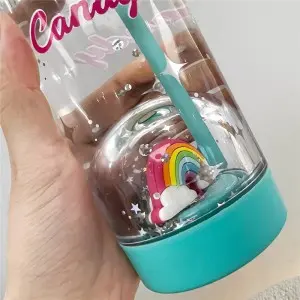When it comes to sustainable living, recycling plays a vital role in reducing waste and protecting our planet. However, not all materials are created equal when it comes to recyclability. One item that is often overlooked in our home is the medicine bottle. We often find ourselves wondering if they can be recycled. In this blog post, we will shed light on this issue and provide comprehensive insights into the recyclability of pharmaceutical bottles.
Learn about pill bottles:
Medicine bottles are usually made of high-density polyethylene (HDPE) or polypropylene (PP). These materials are chosen for their durability, chemical resistance, and ability to maintain drug effectiveness. Unfortunately, due to the special nature of these materials, not all recycling centers can handle these materials.
Factors affecting recyclability:
1. Local recycling guidelines:
Recycling regulations vary by region, which means what can be recycled in one region may not be the same as another. Therefore, it is worth checking with your local recycling center or council to find out whether recycling vials is accepted in your area.
2. Tag removal:
It is critical to remove labels from medicine bottles prior to recycling. Labels may contain adhesives or inks that could hinder the recycling process. Some labels can be easily removed by soaking the bottle, while others may require scrubbing or using an adhesive remover.
3. Residue removal:
Pill bottles may contain drug residue or hazardous substances. Before recycling, the bottle must be completely emptied and rinsed to remove any contamination. Drug residues can pose a risk to recycling center workers and can contaminate other recyclables.
Sustainable Alternatives:
1. Reuse:
Consider reusing medicine bottles at home to store small items like beads, pills, or even as containers for travel-sized toiletries. By giving these bottles a second life, we reduce the need for single-use plastic.
2. Dedicated vial return program:
Some pharmacies and healthcare facilities have implemented special pill bottle recycling programs. They either work with recycling companies or use unique processes to ensure proper disposal and recycling of pill bottles. Research such programs and drop-off locations near you.
3. Ecological brick project:
If you can’t find a regular recycling option for your medicine bottles, you can get involved with the Ecobrick Project. These projects involve packing non-recyclable plastic, such as pill bottles, tightly into plastic bottles. The eco-bricks can then be used for construction purposes or furniture manufacturing.
While pharmaceutical bottles have specific characteristics that can complicate the recycling process, it is critical to explore sustainable alternatives and follow proper recycling practices. Before throwing your pill bottle in the recycling bin, consult local guidelines, remove labels, rinse thoroughly, and seek out any specialized pill bottle recycling programs available. By doing so, we can contribute to a greener future while improving public health. Remember, conscious consumer choice and responsible recycling habits are the pillars of a sustainable society.
Post time: Jul-11-2023
